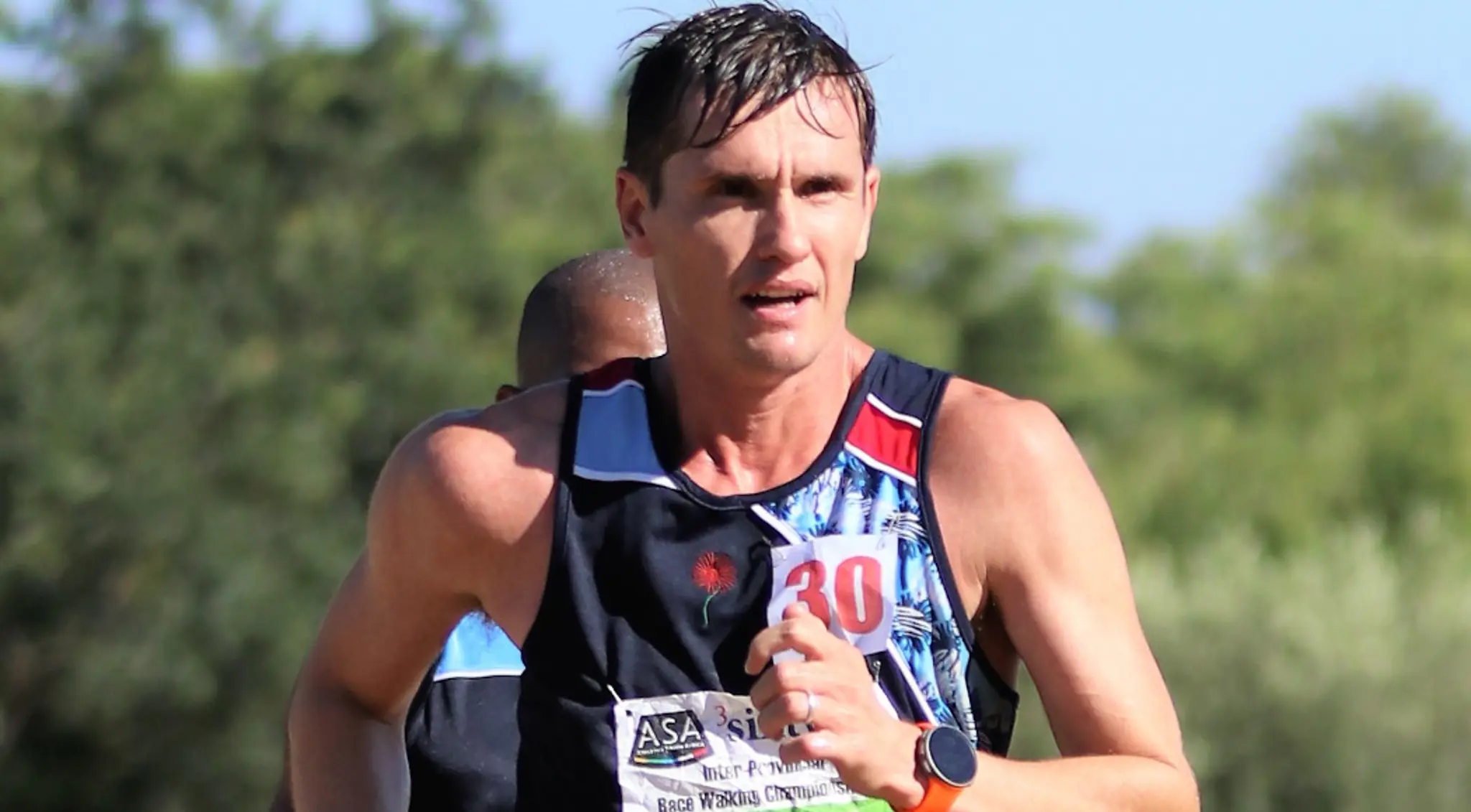Advertisement
SA's racewalker Snyman qualifies for Tokyo Games

Tuks racewalker Wayne Snyman will vouch that a mere second faster can make a big difference; it was what helped him qualify for the Tokyo Olympic Games.
A week ago in Dudince, Slovenia, Snyman clocked 1:20.59 during a 20km-race. He was sixth. Still, the Tuks athlete celebrated. To him, it was mission accomplished. The Olympic qualification standard is 1:21.00, and he was a second faster. That was all that mattered.
Snyman is so far only the second Tuks athlete to qualify in 2021 for the Tokyo Games. Akani Simbine has done so in the 100 metres. The past weekend during the Gauteng North Championships, Simbine won in 9.99s. The Olympic qualification standard is 10.05.
"Pure gold" is how Snyman described that second, which ensured he dip under 1 hour and 21 minutes. According to the Tuks athlete, he did not expect to be so fast.
"A few days before I raced, I was in bed due to stomach flu. It took its toll. Over the last five kilometres, I was low on energy."
The one thing that excites Snyman is how consistent his performances had been over the last three years. His worst placing was finishing sixth. In 2019 in the Czech Republic, when he set a personal best time of 1:20.17, he finished second. Last year he won a race in Ireland.
"The race in Dublin was one of my most challenging because of the cold, windy conditions. It was not like in Pretoria, where you might lose a cap. In Dublin, I literally battled to stay 'on track'. On a few occasions, I was blown off the course. If it was not for the wind, my time would have been much faster."
Snyman credits his coach, Robert Heffernan, for his newfound confidence. The Irishman was himself a racewalker. During the 2013 World Championships in Moscow, he won the 50km-race. He also won bronze during the 2012 London Olympics.
"Heffernan has changed my approach to racing. In the past, I had a straightforward approach. I trained hard, raced hard and hoped for the best. It did not quite work out. The 2016 Rio Olympics and the 2019 Doha World Championships turned out to be terrible experiences. I now realise the importance of being 'mentally' fit as well."
Quitting his job as a teacher was one of the most significant decisions the 36-year-old Tuks athlete had to make.
"I realised that you can't be internationally competitive if you need to work a full day and also train. From a financial perspective, there are times I wonder how wise a decision it was to quit. I owe a lot to my wife for continuous support. My recent results help a bit. When you finish in the top six or better, you do earn some money."
Advertisement